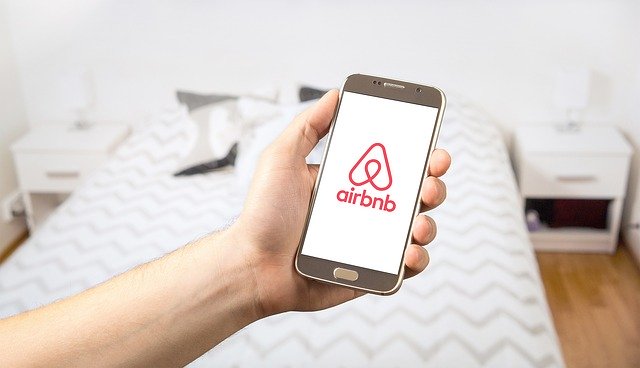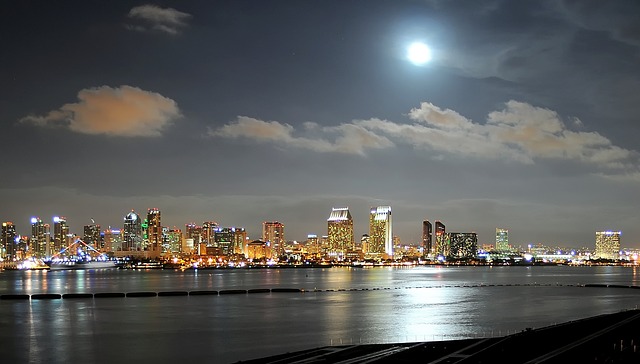No matter where you host your Airbnb property, you’re responsible for paying rental taxes and following short term rental laws. These regulations vary by region, so you’ll have to research your city or town to see where your business fits in. However, we can provide a brief breakdown of regional rental laws that affect Airbnb businesses so you have an idea of what you could be up against.
What Forms Do I Need to File?
If you’re an Airbnb host, you work on your own, so you pay taxes differently than traditional employees. Your Airbnb 1099-MISC provides the totals you need to calculate how much you owe.
As a 1099 business, you’ll need to pay estimated taxes (Form 1040-ES) on your income throughout the year. These payments are made to the federal government. You’ll also need to make similar payments to the state tax agency in your state on four due dates throughout the year.
You are also responsible for paying self-employment taxes (Social Security and Medicare). Since an employer does not take these taxes out for you on your behalf, you will need to pay them directly. Schedule SE is used to calculate these taxes.
Short Term Rental Laws for Airbnb Hosts
In addition, you will also need to look to state and local agencies to determine your respective local business obligations. Many Airbnb hosts are required to pay occupancy taxes to their city as a result of their Airbnb rental activities. However, depending on your tax jurisdiction, there may also be other taxes that you are responsible for.
Here are the Airbnb short term rental laws for several major cities:
New York City, NY:
Short-term rentals under 30 days are illegal in New York City unless the owner is present. See our full article on NYC’s short term rental law here.
Los Angeles, CA:
Some Los Angeles Airbnb businesses may be required to obtain a business license (hotels/motels). Los Angeles also applies a Transient Occupancy Tax (TOT) of 12% on any unincorporated areas within the county, which is collected by Airbnb.
San Diego, CA:
All San Diego Airbnb hosts are required to register and obtain a Business Tax Certificate. San Diego taxes the owners and operators of rentals, unless they are owner-occupied. Airbnb hosts who do not occupy their rentals are required to pay an annual Rental Unit Business Tax. San Diego also imposes a 10.50% Transient Occupancy Tax and a Tourism Marketing District Assessment (TMD), which is an additional percentage tax based on the number of units. The TOT and TMD are collected by Airbnb.
San Francisco, CA:
San Francisco Airbnb hosts must obtain a valid business registration certificate from The Office of the Treasurer & Tax Collector. Then they must also undergo short term rental registration by scheduling an appointment with the Planning Department and paying a $50 fee. As far as ongoing requirements, San Francisco imposes a 14% Transient Occupancy Tax which is collected by Airbnb.
Administrative Code, Chapter 41A.5(g) also requires Airbnb hosts to file quarterly reports which disclose the number and dates of the short-term rentals for of unit with The Office of Short Term Rentals.
Chicago, IL:
There are several requirements for Chicago Airbnb hosts. The City of Chicago requires licenses for vacation rentals, which are defined as a dwelling unit with up to 6 sleeping rooms that are available for short term rental and are not owner-occupied. A business license is also required for a bed and breakfast in Chicago. Chicago imposes a 4.5% “Hotel Accommodations Tax which is collected and remitted by Airbnb.
It is important to follow all of the rules for federal, state, and local tax filings to ensure that your Airbnb business is 100% compliant. To learn more about these requirements, go to the tax information page for your state.
Nashville, TN:
In the city Nashville and Davidson County, home-share hosts need permits from the Metro Codes Department to list their rentals. There are two types of Short-Term Rental Property (STRP) permits, owner-occupied and non-owner occupied. New non-owner-occupied STRP permits are not permitted in residentially-zoned areas. Once your rental is approved, you must follow all local rental laws and regulations. You can learn more Nashville or Davidson County STRP permits and rules on the city’s website.
Miami, FL:
Miami has lots of requirements for Airbnb hosts and the city effectively treats your rental as if its a full-scale business. All rentals must be licensed by the State of Florida and registered with the Florida Dept. of Revenue. Hosts must comply with all applicable state laws for taxation purposes. Before you can legally list on Airbnb, you need to get your property inspected so you can obtain a valid Certificate of Use (CU). The CU certificate costs $36.70, the inspection costs another $89.97, and there is a $9.50 surcharge fee. Altogether, you’ll have to pay about $136 to obtain a CU in Miami. Once your paperwork is in place, you will still need to adhere to local regulations regarding maximum occupancy, responsible party onsite, and other rules. Check out Miami’s complete short-term rental regulations, including application instructions, here.
Get Help With Short Term Rental Laws
If you’re not sure how your Airbnb income will affect your taxes, you might need an extra hand. The pros at Shared Economy Tax can show you what you can expect at tax time, and they can help you figure out the short term rental laws for your city or region. Get started with a free one-on-one strategy session with a certified tax pro today, or sign up for our newsletter for free tax tips and much more.

